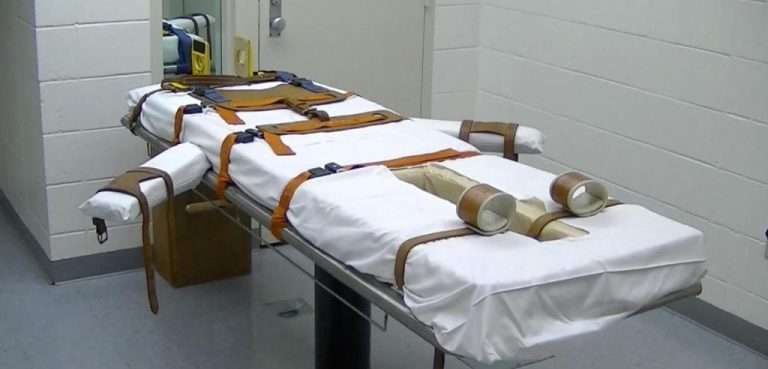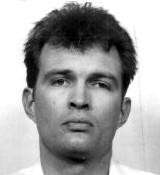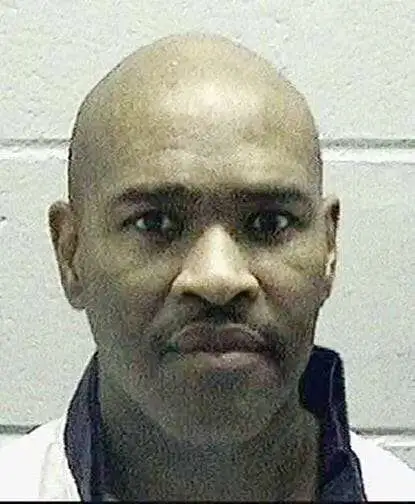Wayne Smith Murders Eileen Jones In PA
Wayne Smith was sentenced to death by the State of Pennsylvania for the murder of Eileen Jones
According to court documents Wayne Smith was mad that Eileen Jones, who was pregnant at the time, ignored his advances so he would strangle the woman causing her death. Smith who had previously spent time in prison for manslaughter was soon arrested
Wayne Smith would be convicted and sentenced to death
Wayne Smith Photos

Wayne Smith Now
Parole Number: 5260P
Age: 67
Date of Birth: 11/28/1955
Race/Ethnicity: BLACK
Height: 6′ 04″
Gender: MALE
Citizenship: USA
Complexion: MEDIUM
Current Location: PHOENIX
Permanent Location: PHOENIX
Committing County: DELAWARE
Wayne Smith Case
A second Delaware County jury has decided on a death sentence for a Chester man who was convicted nearly two decades ago in the murder of 26-year-old Eileen Jones.
Jurors deliberated for about six hours before returning the repeat-decision for Wayne Smith. The decision capped a life-or-death battle among expert witnesses, which played out this week in a penalty phase trial resulting from Smith’s death-sentence appeal to the state Supreme Court.
Smith, now 56, reportedly showed no reaction when the decision was announced, or when Judge James Bradley remanded him to death row at SCI Rockview — where his death by lethal injection would be imposed. No execution date has been set. The last person to be executed in Pennsylvania was Gary M. Heidnik, on July 6, 1999, under former Gov. Tom Ridge.
Smith is currently serving time in a Greene County prison for the Nov. 18, 1994, strangulation of Jones. The Eddystone mother of two was three months pregnant at the time of death.
Assistant District Attorney Erica Parham, spokeswoman for the D.A.’s office, said she anticipates further legal proceedings.
“However, we are very satisfied with the decision of the jury,” she said. “The jury appropriately determined that the defendant’s prior conviction for voluntary manslaughter of a bar patron with a machete, a commonwealth aggravating factor, outweighed any mitigating factor presented by the defense.”
Under Pennsylvania law, death by lethal injections can only be sought in cases in which aggravating circumstances are present
Smith was one of two men charged in 1980 in the fatal stabbing of a Chester resident in a bar. He pleaded guilty to a manslaughter charge and served a two- to four-year jail term.
The previous conviction was one of two aggravating circumstances cited by the prosecution in 1995. The second was that Jones’ killing occurred during the commission of a second felony of attempted rape.
Parham noted that Ed Martin, Jones’ father, was in the courtroom throughout the week and left about an hour before the jury returned with a decision, shortly before 7:30 p.m.
“He bravely endured the proceedings this week,” Parham said “He has felt the loss of his daughter since 1994. His presence showed his commitment to justice, and the Office of the District Attorney is just as committed.”
Smith was convicted of first-degree murder in May 1995 and given a death sentence. At that time, after the verdict he turned and apologized to the victim’s family for the strangulation.
“I’ll never forgive myself,” said Smith. “I just hope that in time the family and her kids will forgive me,” he added, while beginning to cry.
Jones’ partially clothed body was fished from the waters of Ridley Creek near Ninth Street — between the Chester and Eddystone border — on Nov. 22, 1994.?
During the initial trial, the prosecution claimed Smith killed Jones after she rejected his sexual advances. Defense counsel Raymond Williams argued Smith killed the woman while in a cocaine-induced frenzy
According to testimony given at trial this week, Smith had made an arrangement with Jones that she would give him sex in exchange for cocaine. After several hours spent with the victim, the sexual encounter occurred in a park near the Ninth Street Bridge, where the victim was later found
Smith told police that at some point the two began wrestling on the ground, according to a statement read in court. He then became afraid that Jones, who is white, would say Smith had raped her. Smith said he did not believe a jury would believe him because he is black.
He strangled the woman and dragged her to the creek where her body was later discovered. Smith would have had to strangle Jones for two-and-a-half to three minutes to choke the life out of her, according to former Delaware County Medical Examiner Dr. Dimitri Contostavlos.
Smith initially lied to police about the murder, but later confessed, according to a taped statement played for the court.
He appealed the death penalty sentence to the state Supreme Court. The court affirmed the murder conviction in 2010, but ordered a new hearing on the death penalty. Because the murder conviction was upheld, only two options remained open to the new jury: Life imprisonment or death.
The appeals court determined that defense counsel’s “inadequate investigation” and “narrow focus on cocaine-induced psychosis as the key to the guilt phase, coupled with his disregard for other forms of mental health mitigating evidence, which would have been useful at the penalty phase, cannot be said to have been a reasonable strategy.”
Smith’s new attorney, William Wismer, offered testimony this week from Dr. George Woody, an expert in psychiatry and substance abuse, who found Smith’s fear that no one would believe him could have stemmed from childhood factors like abuse and neglect, exacerbated by cocaine use.
“I think that he developed a cocaine-induced paranoia and that cocaine magnified the problems he had with anger and anxiety and impulse control, and putting all that together it resulted in the behavior that caused (Jones’) death,” he said.
Neuropsychologist Carol Armstrong also told Wismer that Smith was severely impaired in his ability to reason and suffered post-traumatic stress disorder from his abusive childhood.
Armstrong said the chronic stresses Smith underwent in childhood likely resulted in brain damage and that his escape mechanism – long and intensive crack cocaine and alcohol abuse – could have induced psychosis.
But clinical and forensic psychiatrist Dr. Gerald Cooke told Assistant District Attorney Mary Mann that Armstrong had evaluated Smith inaccurately. There was no determination in her report how she came to diagnose him with PTSD, said Cooke, and none of the tests in which he was found to be impaired have a baseline “norm” for age, education, race and sex that psychiatrists use for comparison.
On seven tests with norms that Armstrong did administer, Cooke said Wayne Smith did not fall into the impaired range, and on three of those he even scored above normal.













